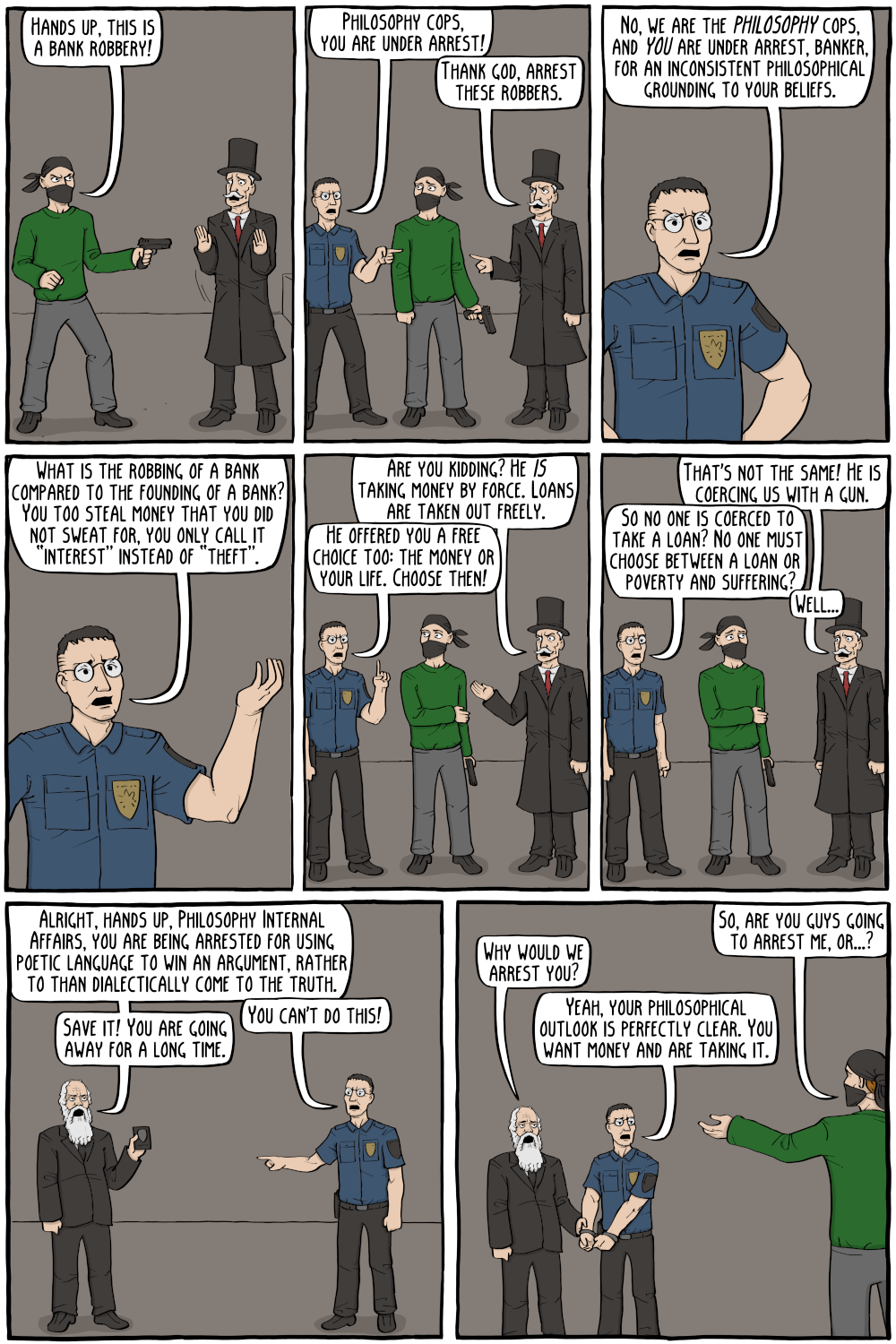Can someone explain the difference between "poetic language" and "dialectically coming to the truth"?
Comics
This is a community for everything comics related! A place for all comics fans.
Rules:
1- Do not violate lemmy.ml site-wide rules
2- Be civil.
3- If you are going to post NSFW content that doesn't violate the lemmy.ml site-wide rules, please mark it as NSFW and add a content warning (CW). This includes content that shows the killing of people and or animals, gore, content that talks about suicide or shows suicide, content that talks about sexual assault, etc. Please use your best judgement. We want to keep this space safe for all our comic lovers.
4- No Zionism or Hasbara apologia of any kind. We stand with Palestine 🇵🇸 . Zionists will be banned on sight.
5- The moderation team reserves the right to remove any post or comments that it deems a necessary for the well-being and safety of the members of this community, and same goes with temporarily or permanently banning any user.
Guidelines:
- If possible, give us your sources.
- If possible, credit creators of each comics in the title or body of your post. If you are the creator, please credit yourself. A simple “- Me” would suffice.
- In general terms, write in body of your post as much information as possible (dates, creators, editors, links).
- If you found the image on the web, it is encouraged to put the direct link to the image in the ‘Link’ field when creating a post, instead of uploading the image to Lemmy. Direct links usually end in .jpg, .png, etc.
- One post by topic.
Dialectically thinking would be to consider the issue at hand, and to form multiple positions to interpret or explain the situation, often contradictory or opposing positions.
The banker example has the philosophy cop browbeat the banker with a single line of reasoning. What he could do is take the bankers position himself, flesh it out, and argue both points (and others) to find the most sound position, that is often a nuanced blend of the others.
Thanks, great explanation!
So does the Philosophy Internal Affairs guy. Hypocrite.
In the last few panels the banker is gone and the philosophers are leaving unharmed, so once again the day is saved by the Philosophy Cop.
The lesson here is that if you're gonna commit a crime, don't make excuses to try justify it, those will inevitably put the philosophy cops on your trail, just do it cause you want to. Prepare with some Stirner in case there's a sting operation.
Take notes, pirates, and hoist your sails with pride in your skulduggery, not deflections.
About the last panel, I mean, ok, but isn't that what the banker is doing too? Isn't that what everybody does for everything? So therefore the only sin is coercion?
But the banker thought it was ok when he did it but not when the “robber” did it. Which represents (so it is claimed) a poorly grounded belief system, since what the banker does is (it is argued) the same as what the robber does.
Apparently, being consistent in your beliefs and actions is the most important thing.
This led to an entertaining and brain-excercising hour-long rabbit hole. Nice!
